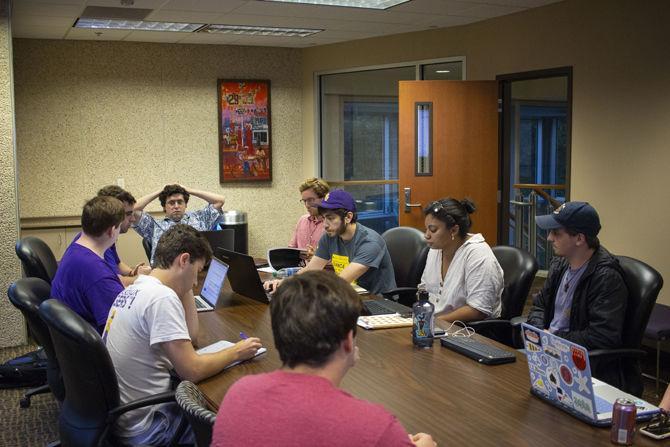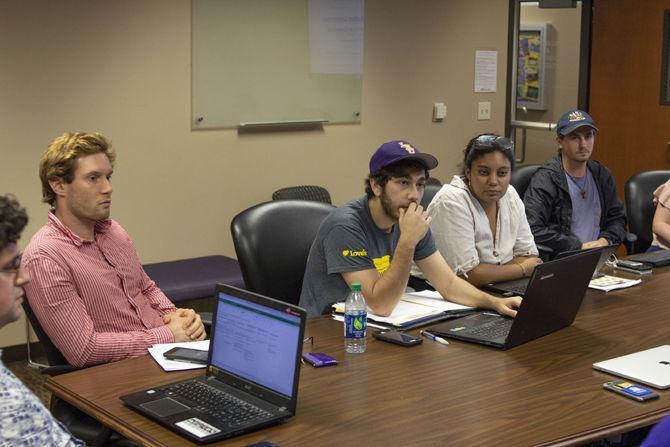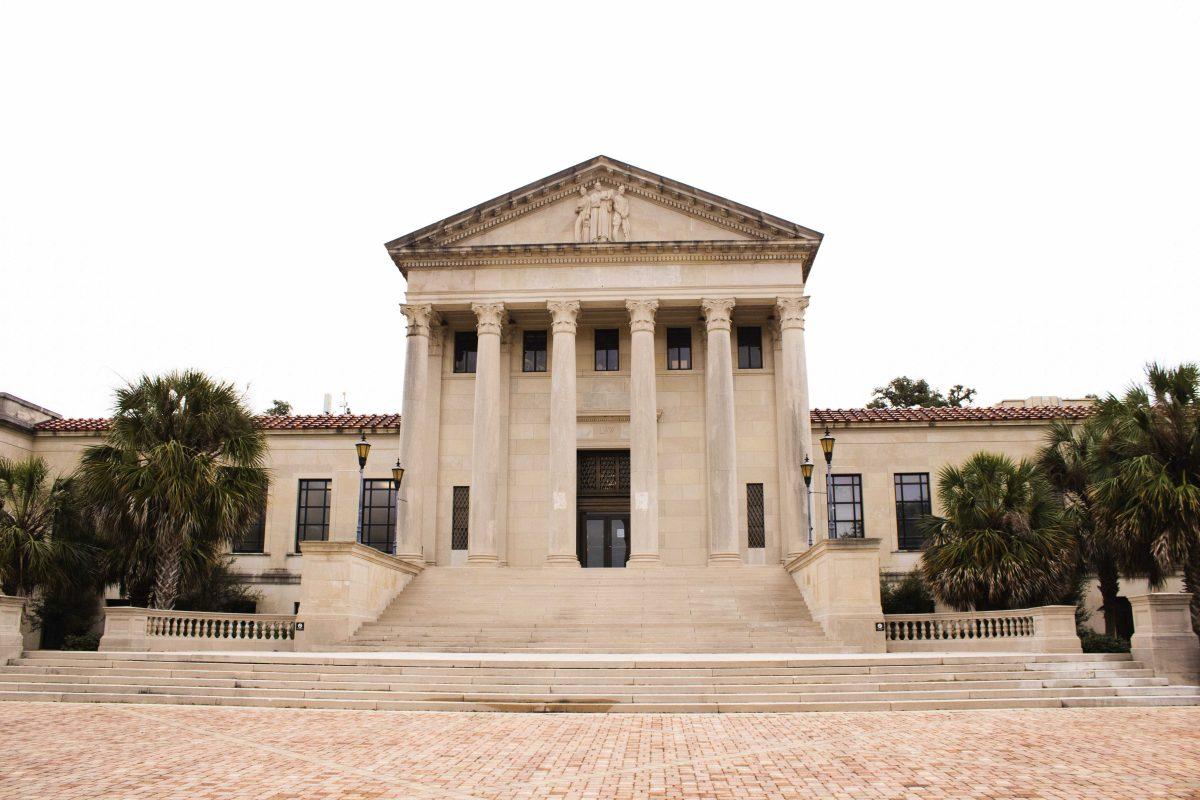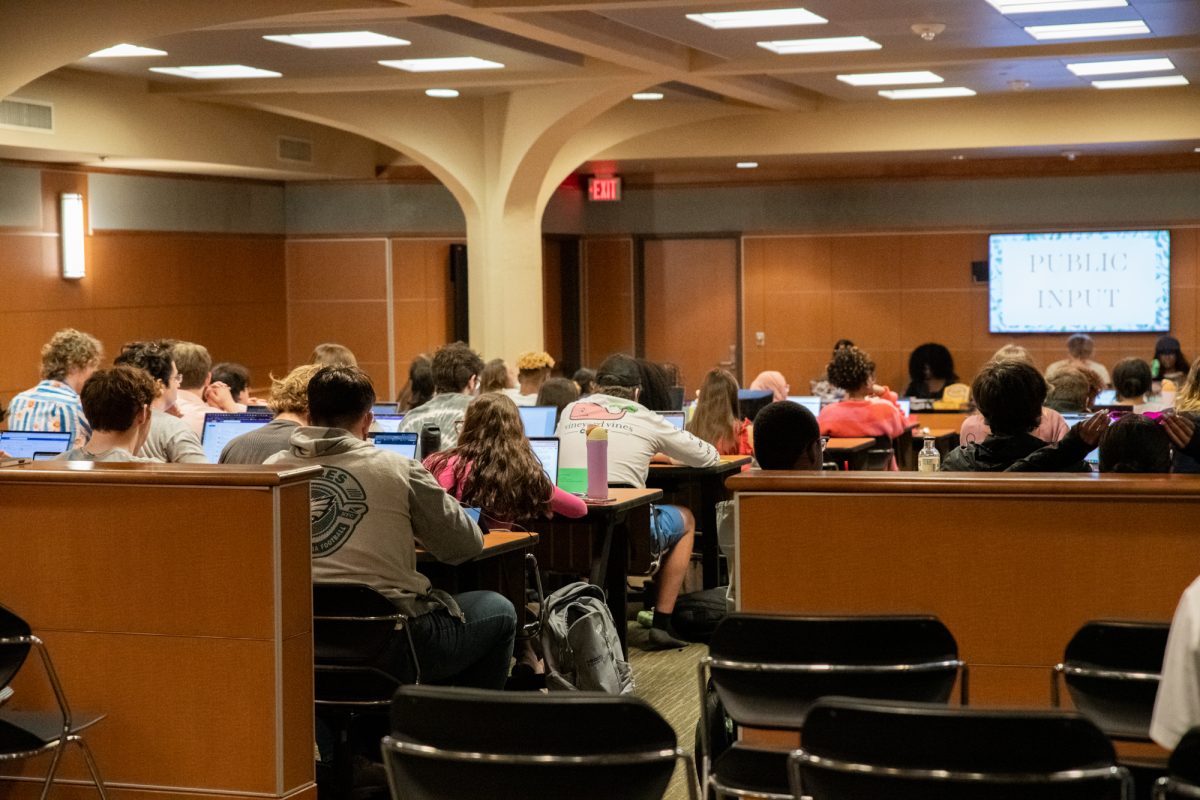LSU Student Government’s election document review committee, the EDRC, will consider revisions to the election code and other governing documents, according to speaker of the student senate Christina Black.
Two significant election cases last year necessitated the review of election-related documents, according to chief justice of the University Court Andrew Chenevert. The first involved the creation of a special election for the Honors College council due to voting issues on Moodle. The other involved the disqualification of candidates on the Together We Can ticket, according to Chenevert.
The Together We Can ticket filed seven candidates for six seats in a single college’s senate, which is against a guideline that states a ticket may only file as many candidates as there are seats, according to commissioner of elections Erica Borne.
After the case’s revision, all seven candidates filed for those senate seats on the Together We Can ticket were disqualified, Borne said.
“There wasn’t really a clear outline for that, so that’s when the judicial branch came into play,” Borne said. “There hadn’t been a case like that in a few years, so through that process, everyone in Student Government realized there were some flaws in the election code and our governing documents.”
The election code includes guidelines pertaining to campaign timelines, ticket registration, individual candidate registration and other related issues, Black said.
The committee consists of five individuals from the executive branch and five individuals from the legislative branch ,along with non-voting members from each branch, said Black, who serves as an ex-officio, non-voting member.
The EDRC voting members are largely students who will be graduating so they don’t have a vested interest in upcoming elections, but who have also participated in elections in the past, Black said.
The committee held its first meeting on Sept. 6 and will continue to meet for the remainder of the semester to consider revisions.
Committee chair Jordan Landry said any changes to the election code will have to be filed by the end of the semester to take effect in the spring elections.
Black said she formed the EDRC partly as a result of SG’s difficulty filling the election board. Last year, only the commissioner of elections served on the election board with six remaining open seats. Vacancies on the board and high turnover for the commissioner of elections position prevented the board from reviewing the documents in-depth as new procedures arose.
“We’ve had different commissioners for the past three or four elections, so there hasn’t been a consistent person there to be able to notice if there had been any flaws or any discrepancies in the election code,” Black said.
Black said she charged the committee with updating the language of the documents to more accurately align with current election processes. For example, the election code still requires students to present a picture ID with their tiger cards upon registration for the election. However, students wishing to run now file their candidacy online through Moodle.
Other technical changes being considered include establishing up-to-date guidelines on technology use in campaigns and replacing the language referring to voting stations with the Moodle voting process procedures, according to Black.
Borne said the committee will consider revisions to campaign spending limits. As of now, any president and vice president pair can spend $3,000 plus $75 for each candidate on the ticket running for a senate or college council position.
Borne said the committee will consider revisions to campaign spending limits. As of now, any president and vice president pair can spend $3,000 plus $75 for each candidate on the ticket running for a senate or college council position.
The committee is also considering moving the election board from the executive branch to the judicial branch, Chenevert said. Chenevert said he also wants to write a how-to-run elections guide as a result of the election cases.
Landry said he hopes the EDRC will clarify procedures to avoid future conflict with election cases and also make participation in SG more inclusive and accessible.
“The issues in the last few years are nowhere near ‘armageddon bad,’ but we want to be somewhat proactive,” Landry said. “If things aren’t nipped in the bud, sometimes it can lead to problems like rerun election problems [and] mass disqualification problems.”
Borne also said she hopes the EDRC will establish some consistency and clarification in elections moving forward.
“This year, we’re off to a really good start,” Borne said. “We only have one vacancy on the election board, so there’s six of us total. I think that this election code review is going to help kind of clarify any of the processes that have been up in the air or in a grey area as well as just make the future elections board’s life a little easier.”
Thus far, the committee hasn’t made any permanent revisions, Black said. If the committee proposes changes to elections outside of the election code, like in the constitution, those changes would go to a referendum in the student body.
“At this point in time, anything is up for discussion,” Black said. “There’s nothing set in stone.”
The EDRC holds committee meetings on Thursdays at 6:30 p.m. in the Tchoupitoulas Room on the fourth floor of the Student Union. Meetings are open to the public.











